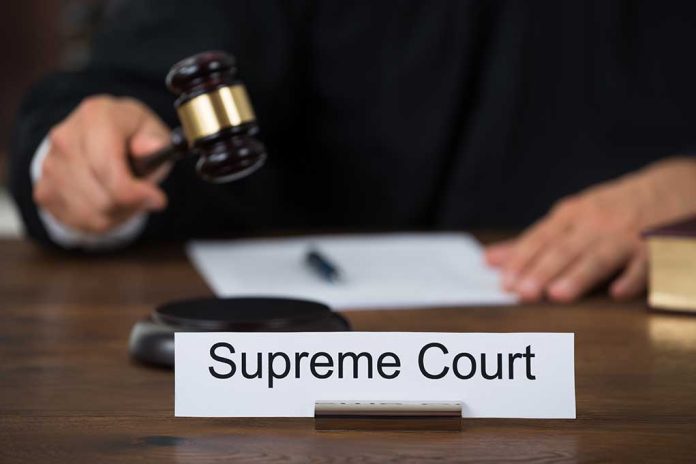
A Georgia death row inmate’s plea for execution by firing squad has been denied, sparking debate over constitutional rights and execution methods.
Key Takeaways
- U.S. District Judge J.P. Boulee denied Michael Wade Nance’s request for execution by firing squad.
- Nance argued lethal injection would cause cruel and unusual punishment due to his medical condition.
- The judge ruled Nance failed to provide sufficient evidence of potential severe pain from lethal injection.
- The case highlights ongoing debates about constitutional rights and execution methods in the United States.
- Nance’s legal team plans to appeal the decision, potentially leading to further constitutional examination.
Lethal Injection Challenge Rejected
Michael Wade Nance, a Georgia death row inmate convicted of murder in 1993, has been denied his request to be executed by firing squad instead of lethal injection. U.S. District Judge J.P. Boulee ruled that Nance failed to provide sufficient evidence to prove that lethal injection would result in severe pain, thus rejecting his claim of cruel and unusual punishment.
Nance’s legal challenge stems from his medical condition, which he argues would make lethal injection exceptionally painful. His lawyers contended that his compromised veins and potential ineffectiveness of the sedative used in the procedure could lead to a violation of his constitutional rights.
Michael Wade Nance, on Georgia's death row for a 1993 murder, argued that lethal injection could cause him severe pain due to his medical history and proposed a firing squad as an alternative. https://t.co/KBZMP27iTc
— FOX 5 Atlanta (@FOX5Atlanta) February 15, 2025
Supreme Court Ruling and Constitutional Debate
The case has sparked a broader constitutional debate about execution methods and inmates’ rights. In a previous 5-4 decision, the U.S. Supreme Court ruled that Nance could challenge Georgia’s lethal injection protocol under federal civil rights law. This decision overturned a ruling from the 11th Circuit Court of Appeals, which had initially rejected Nance’s claims.
“Nance’s requested relief still places his execution in Georgia’s control. If Georgia wants to carry out the death sentence, it can enact legislation approving what a court has found to be a fairly easy-to-employ method of execution.” stated Justice Elena Kagan. Kagan, writing for the majority, emphasized that Section 1983 of federal civil rights law can be used to compel changes in state laws to protect federal constitutional rights. This ruling opened the door for inmates like Nance to propose alternative execution methods not currently authorized by state law.
Medical Evidence and Legal Standards
In his decision, Judge Boulee noted that a state doctor had testified that Nance had undergone medical procedures requiring IVs without issues. This evidence contradicted Nance’s claims about his compromised veins. The U.S. Supreme Court has set a high bar for such challenges, requiring proof of a substantial risk of harm and the existence of feasible alternatives to challenge execution methods.
“The State has legislated changes to its execution method several times before. Other States have regularly done the same, often in an effort to make executions more humane” Justice Elena Kagan went on to say.The judge did not address Nance’s argument for a firing squad, as the lack of evidence for severe pain from lethal injection made it unnecessary to consider alternative methods. This decision highlights the complex interplay between medical evidence, legal standards, and constitutional rights in death penalty cases.
Future Implications and Appeals
Nance’s legal team has announced plans to appeal the decision, which could lead to further exploration of the constitutional implications of different execution practices. The case has already navigated a complex legal journey, including procedural challenges and multiple court rulings.
Sources:
Justices rule for Georgia inmate seeking execution by firing squad
Judge denies Georgia death-row inmate’s request for firing squad
Judge rejects request from Georgia death row inmate to be executed by firing squad













